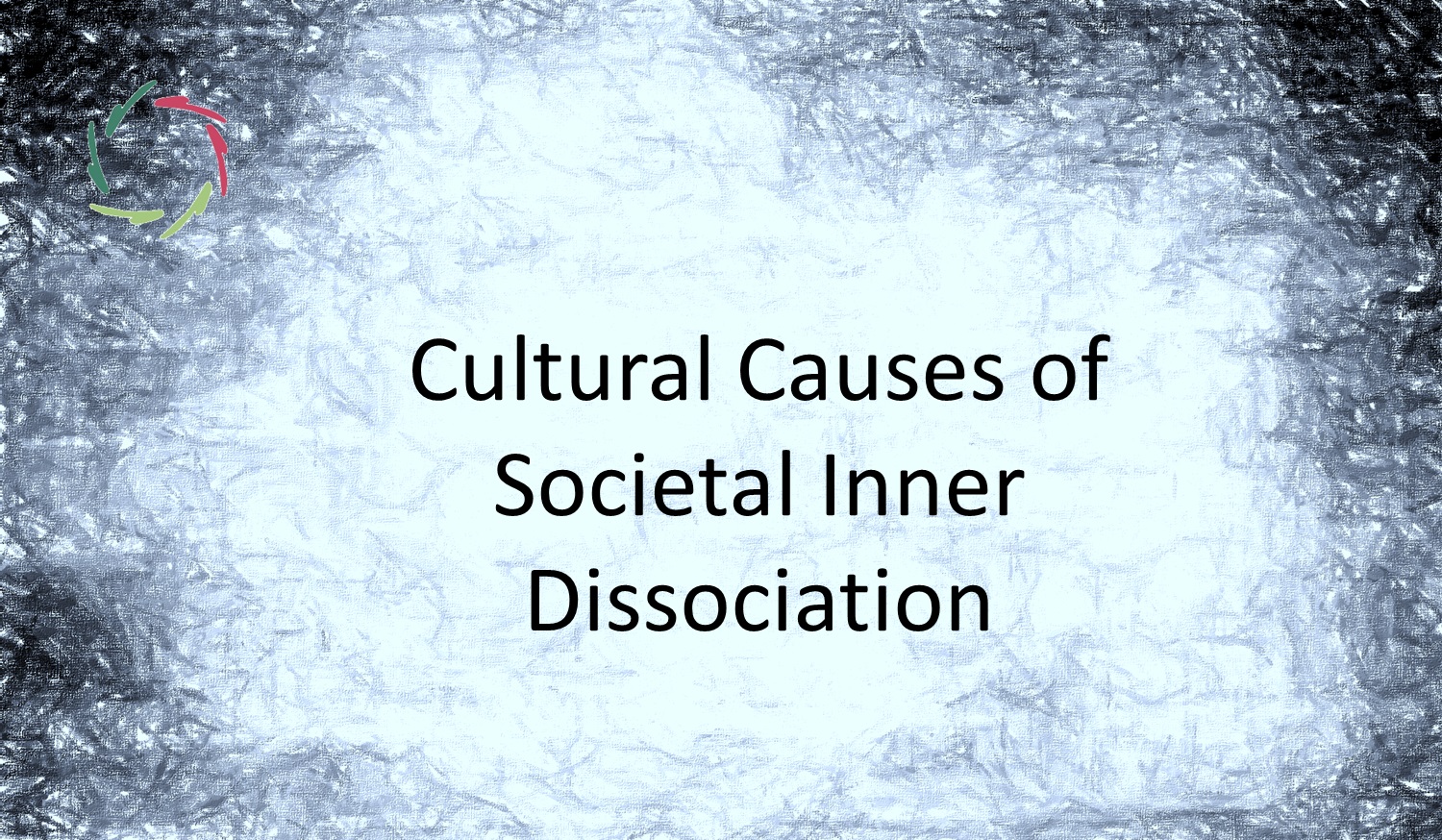Cultural Causes of Societal Inner Dissociation

Many cultural factors contribute to Societal Inner Dissociation (SID), mutually interacting and exacerbating dissociation within modern societies.
This is part of the *SID* series. Please read the primary blog of this series for a basic understanding of Societal Inner Dissociation (SID).
SID doesn’t arise in a vacuum.
It is deeply influenced by the ways societies are structured and the cultural norms that shape our collective behavior.
Three significant cultural drivers of SID are religion, societal complexity, and technology. While each of these elements plays a vital role in modern life, they also carry the potential to deepen dissociation when not approached with awareness.
Religion: the double-edged sword of connection and dissociation
Religion has been a central part of human culture for millennia, offering individuals and communities a sense of meaning, purpose, and connection to something greater than themselves. At its best, it provides a framework for individuals to explore their inner selves, connect with others, and align their lives with deeper values. Religious rituals, communal worship, and teachings about Compassion and love can help reduce inner dissociation by fostering a sense of belonging and spiritual fulfillment.
However, religion can also be a source of SID when it becomes rigid, dogmatic, or disconnected from the deeper, spiritual experiences it is meant to foster. In such cases, the emphasis shifts from inner growth to outward conformity, leading to a disconnect between individuals’ deeper spiritual needs and the religious practices they engage in. This dissociation can manifest as hypocrisy, guilt, or alienation, where people feel disconnected from the true essence of their faith.
Societal complexity: the overload of modern life
The complexity of modern societies, with their intricate social structures, rapid technological changes, and global interconnectedness, plays a significant role in deepening SID. As societies become more complex, individuals often struggle to keep up, leading to a sense of fragmentation and overwhelm.
The burden of complexity makes people feel disconnected from the simpler, more meaningful aspects of life. As they try to navigate this complexity, the gap between their conscious actions and deeper non-conscious needs widens.
For example, the complexity of political systems can leave citizens feeling powerless and disconnected from the decision-making processes that affect their lives, further deepening SID.
Technology: the paradox of connection and isolation
While technology, particularly digital technology, has transformed the way we live, work, and interact with one another, it also plays a significant role in exacerbating SID.
One of the most profound impacts of technology is the way it shapes our social interactions. Unfortunately, the superficial nature of many online interactions can lead to a sense of disconnect from deeper, more meaningful relationships, contributing to SID.
The rapid pace of technological advancement can also overwhelm individuals and societies, leading to a sense of fragmentation. As people struggle to keep up with the constant influx of new technologies, they may feel disconnected from their own deeper values and from the more reflective ways of life that technology often displaces.
Artificial intelligence and SID
Looking to the future, the rise of artificial intelligence presents both challenges and opportunities for SID. While A.I. has the potential to deepen dissociation by replacing human interactions with machine-based processes, it also holds the promise of helping to address SID if developed and used with an awareness of its impact on human psychology and societal cohesion.
Addressing these root causes of many modern societal challenges
By approaching religion with a focus on genuine spiritual connection, managing complexity to foster meaningful engagement, and using technology in ways that enhance rather than diminish human connection, we may be able to heal the dissociation that affects so many aspects of our lives.
At least, we might then begin to address these challenges.


